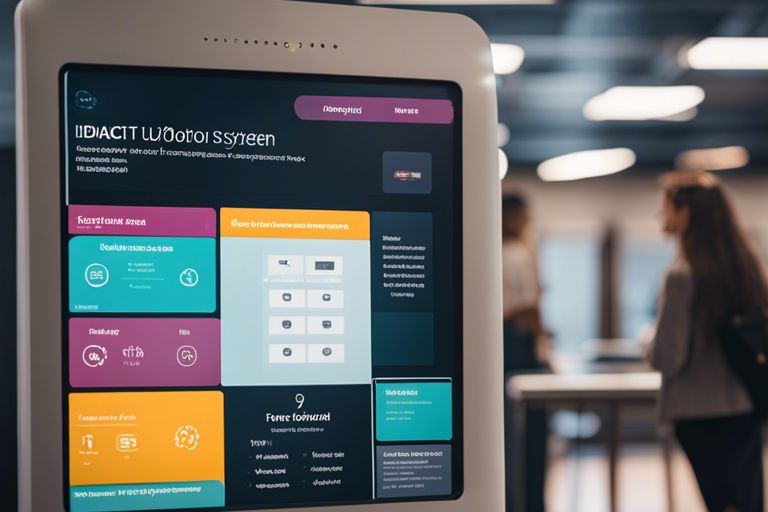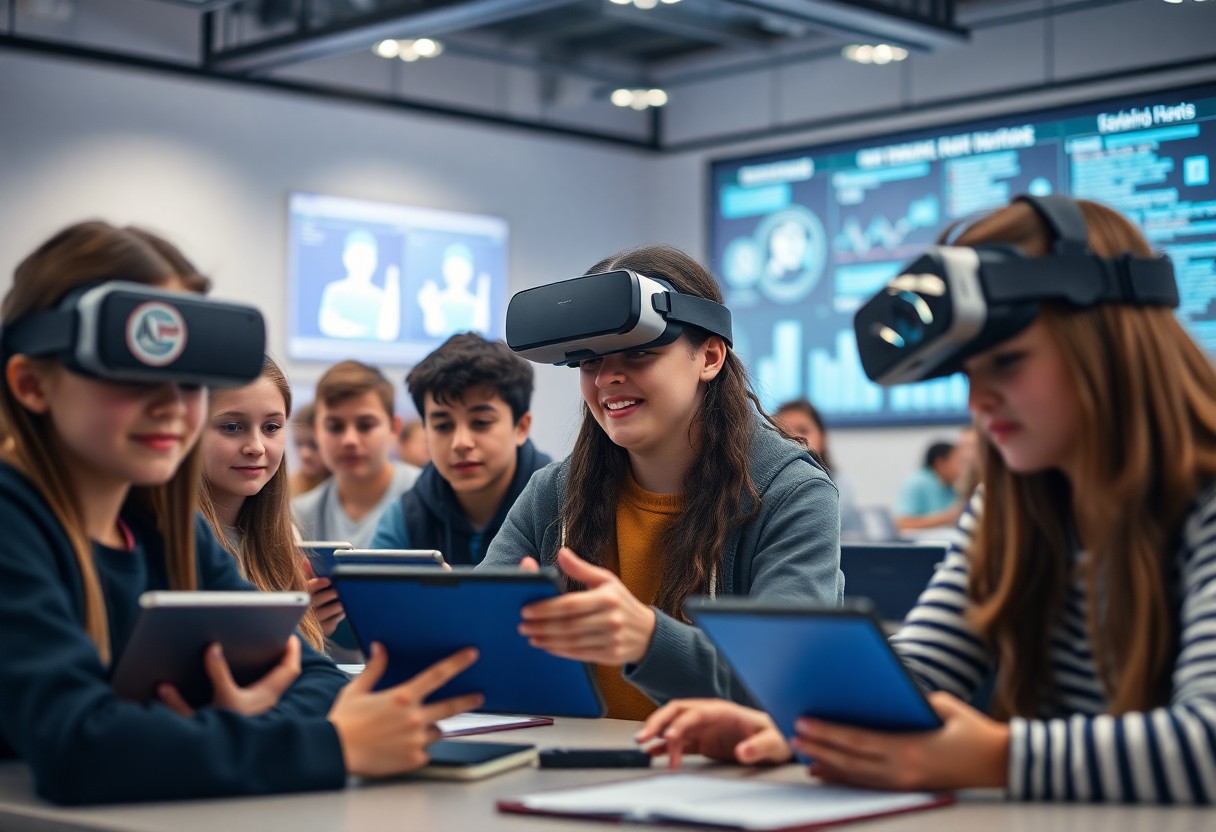Just as technology continues to transform various aspects of our lives, AI-driven personalized learning plans are revolutionizing education. By harnessing the capabilities of AI technology, educators can tailor learning experiences to individual students, optimizing their academic potential and educational outcomes. This blend of personalization and artificial intelligence holds the key to unlocking a new era of customized education, enriching the learning journey for students of all levels.
The Rise of Personalized Learning
The Limitations of Traditional Education
The traditional one-size-fits-all approach to education has long been the standard in schools around the world. However, this method often fails to address the unique learning styles and paces at which students learn. Students are expected to all grasp concepts at the same time and in the same way, leading to many falling behind or feeling disengaged.
The Promise of Technology-Driven Solutions
The traditional education system is at a crucial turning point with the rise of technology-driven solutions in the form of AI technology. These solutions have the potential to revolutionize the way students learn by offering personalized learning experiences tailored to each individual’s needs and preferences.
Personalized learning plans powered by AI can analyze a student’s strengths, weaknesses, and learning preferences to create a custom-tailored learning path. This can lead to more efficient learning, improved retention of information, and ultimately higher academic success rates for students of all levels.
What are Personalized Learning Plans?
Defining the Concept
One of the most significant advancements in education today is the concept of Personalized Learning Plans (PLPs). These plans are tailored to meet the unique needs, interests, and learning styles of individual students. By leveraging Artificial Intelligence (AI) technology, educators can create customized learning paths that adapt and evolve based on the student’s progress and feedback.
Key Components and Benefits
An important component of Personalized Learning Plans is the ability to analyze vast amounts of data to pinpoint the strengths and weaknesses of each student. This data-driven approach enables educators to design targeted interventions and provide personalized feedback in real-time, fostering a more engaging and effective learning experience. Furthermore, PLPs empower students to take ownership of their learning journey, promoting self-directed learning and autonomy in education.
This innovative approach not only enhances academic performance but also cultivates critical thinking skills and resilience in students. By catering to individual needs and interests, Personalized Learning Plans support holistic development and long-term success both inside and outside the classroom.
The Role of AI in Personalized Learning
How AI Enhances Learning Outcomes
Any institution that prioritizes personalized learning plans must recognize the invaluable role that Artificial Intelligence (AI) plays in enhancing learning outcomes. AI has the capability to analyze vast amounts of data to create individualized learning paths tailored to each student’s strengths, weaknesses, and learning style. By leveraging AI technology, educators can deliver tailored content and resources to meet the diverse needs of students, ultimately improving engagement and academic performance.
AI-Driven Adaptive Assessments and Feedback
Learning with AI-driven adaptive assessments and feedback is a game-changer in education. AI algorithms can assess student progress in real-time, providing immediate feedback and adapting the learning experience accordingly. This personalized approach not only helps students grasp difficult concepts more effectively but also empowers educators to make data-driven decisions to support each student’s academic growth.
The Science Behind AI-Powered Learning
Cognitive Psychology and Learning Theory
All AI-Powered systems rely heavily on cognitive psychology and learning theory to create personalized learning plans. By understanding how individuals process information, learn new concepts, and retain knowledge, AI algorithms can adapt and tailor learning experiences to meet the unique needs of each learner. This personalized approach can significantly enhance learning outcomes by catering to individual learning styles and preferences.
Machine Learning Algorithms and Data Analysis
AIPowered learning platforms utilize advanced machine learning algorithms and data analysis techniques to analyze vast amounts of data and extract valuable insights into students’ learning patterns, behaviors, and preferences. These algorithms can identify trends, correlations, and patterns that human teachers may overlook, allowing for a deeper understanding of each student’s strengths and weaknesses.
Machine learning algorithms are continuously improving and evolving based on the data they analyze, enabling AI systems to make more accurate predictions and recommendations for optimized learning experiences. This dynamic and adaptive nature of AI technology ensures that personalized learning plans are constantly refined and tailored to each student’s unique needs.
Creating Effective Personalized Learning Plans
Identifying Student Needs and Strengths
Effective personalized learning plans start by identifying each student’s unique needs and strengths. AI technology can analyze a student’s past performance, learning style, and preferences to create a tailored plan that addresses their specific requirements. By understanding where students excel and where they need support, educators can tailor teaching strategies to suit individual learning styles.
Setting Realistic Goals and Objectives
One crucial aspect of creating personalized learning plans is setting realistic goals and objectives for each student. These goals should be achievable yet challenging, motivating students to strive for success. AI technology can assist educators in setting appropriate goals based on a student’s current capabilities and growth potential.
Another crucial component of setting realistic goals and objectives is ensuring that they are measurable and adaptive. This allows for continuous tracking of progress and adjustment of goals as needed, maximizing the effectiveness of the personalized learning plan.
Implementing AI-Driven Personalized Learning
Integrating AI Technology into Existing Curricula
To enhance the effectiveness of personalized learning plans, existing curricula must seamlessly integrate AI technology. This involves incorporating AI-driven tools and platforms that can analyze student data to identify individual learning needs and preferences. By leveraging AI algorithms, educators can tailor lesson plans and assignments to meet the unique requirements of each student, leading to improved engagement and learning outcomes.
Teacher Training and Support
Into the implementation process, it is crucial to provide comprehensive teacher training and ongoing support to empower educators in utilizing AI technology effectively. Personalized learning plans require teachers to understand how to interpret AI-generated insights and apply them to individualize instruction. By offering professional development opportunities and access to expert resources, schools can ensure that teachers are equipped with the skills and knowledge needed to optimize the benefits of AI-driven personalized learning.

Overcoming Challenges and Concerns
Addressing Equity and Access Issues
Your concerns about equity and access in personalized learning plans with AI technology are valid. It is crucial to ensure that all students, regardless of their background or resources, have equal opportunities to benefit from these innovative learning solutions. One way to address this is by providing access to technology and internet connectivity for all students. Schools and policymakers need to work together to bridge the digital divide and make sure that personalized learning plans are truly accessible to all learners.
Ensuring Data Privacy and Security
For concerns regarding data privacy and security in personalized learning plans powered by AI, it is necessary to implement stringent measures to protect students’ sensitive information. Encryption, secure servers, and regular security audits are key to safeguarding data. Additionally, schools must be transparent about how student data is collected, used, and stored, and obtain proper consent from parents or guardians before implementing personalized learning plans.
Addressing these challenges and concerns is imperative to fully harness the power of personalized learning plans with AI technology. By prioritizing equity, access, data privacy, and security, educators can create a safe and inclusive environment where every student can thrive and reach their full potential.
The Future of Education with AI-Driven Personalized Learning
Predictions and Possibilities
Many educational experts believe that AI-driven personalized learning is the future of education. With the help of artificial intelligence, educators can create customized learning plans for each student based on their unique strengths, weaknesses, and learning styles. This tailored approach has the potential to revolutionize the way students learn, ensuring that they receive the individualized attention they need to thrive academically.
Preparing Students for an AI-Driven World
The integration of AI technology in education is reshaping the skills that students need to succeed in the workforce. The personalized learning plans powered by AI not only enhance academic performance but also equip students with critical thinking, problem-solving, and adaptability skills that are crucial in an AI-driven world. By embracing AI-driven personalized learning, schools are preparing students for a future where technology plays a central role in all aspects of society.
Real-World Applications and Success Stories
K-12 Education and Beyond
The adoption of AI technology in personalized learning plans has revolutionized K-12 education and extended its benefits far beyond traditional classrooms. Unlike traditional one-size-fits-all teaching approaches, personalized learning plans powered by AI can cater to each student’s unique learning style, pace, and preferences. This individualized approach enhances student engagement, motivation, and ultimately academic performance.
With AI technology, educators can track students’ progress in real-time, identify learning gaps, and provide timely interventions. This proactive approach ensures that students receive the support they need, leading to better outcomes and a more efficient use of educational resources.
Corporate Training and Professional Development
One of the most impactful applications of personalized learning plans with AI technology is in corporate training and professional development. Companies are embracing AI-powered platforms to deliver customized training programs tailored to each employee’s skills, goals, and job requirements. This not only improves employee performance but also increases job satisfaction and retention rates.
The ability of AI technology to analyze vast amounts of data enables companies to create targeted learning paths that address specific skill gaps and development needs. This targeted approach leads to more effective training outcomes and a significant return on investment for organizations.
Evaluating the Efficacy of AI-Driven Personalized Learning
Research and Studies
The integration of AI technology in personalized learning plans has reshaped educational practices. Despite initial skepticism, research and studies have shown promising results. AI algorithms can analyze vast amounts of student data to identify individual learning patterns and preferences, allowing educators to tailor instruction accordingly. This level of personalization has been linked to increased engagement, motivation, and ultimately, academic performance.
Measuring Student Outcomes and Progress
For educators, evaluating the efficacy of AI-driven personalized learning involves tracking student outcomes and progress. By comparing academic achievements before and after the implementation of personalized learning plans powered by AI, it becomes possible to measure the impact on individual students and overall classroom performance. Additionally, real-time data analysis enables educators to make timely adjustments to the learning strategies to better support student needs.
Plus, AI technology can provide valuable insights into student learning behaviors and preferences that may not be immediately apparent through traditional assessment methods. By identifying areas where students excel or struggle, educators can intervene early to provide targeted support and resources, leading to more effective learning outcomes.
The Human Touch in AI-Driven Education
After implementing AI technology in personalized learning plans, it’s necessary not to overlook the human touch in education. While AI can analyze data, provide insights, and create customized learning paths, the role of teachers remains irreplaceable in the learning process.
The Role of Teachers in Personalized Learning
One critical aspect is the role of teachers in interpreting AI-generated data to understand students’ progress and tailor teaching methods accordingly. Teachers bring experience, empathy, and a personal connection that AI cannot replicate. They provide encouragement, support, and guidance beyond the capabilities of algorithms, nurturing a holistic learning experience.
Fostering Emotional Intelligence and Social Skills
Touching upon emotional intelligence and social skills, teachers play a vital role in cultivating these necessary aspects of education. Emotional intelligence and social skills are not easily quantifiable, and require human interaction and understanding. Teachers can recognize subtle cues, offer mentorship, and create a safe space for students to develop these crucial skills, which are keys to success in the future workplace and society.
AIDriven technologies can assist in identifying areas where students may need additional support in emotional intelligence and social skills development, enabling teachers to intervene effectively and foster a well-rounded educational experience.
Addressing the Digital Divide
Ensuring Access to Technology and Internet
Not all students have equal access to technology and the internet, creating a digital divide that can hinder their learning potential. In today’s increasingly digital world, having access to technology and the internet is crucial for students to fully participate in personalized learning plans powered by AI technology.
Strategies for Inclusive and Equitable Education
Divide: To bridge the digital gap and ensure equitable education, schools and policymakers must implement strategies that prioritize inclusivity and accessibility. This includes providing students from underserved communities with the necessary technology tools and internet access to engage effectively with personalized learning platforms.
Plus, offering training and support to both students and teachers on how to utilize AI-powered personalized learning tools effectively can help level the playing field and create more equitable educational opportunities for all learners.
The Ethics of AI in Education
Now, as we embrace the potential for AI to revolutionize education through personalized learning plans, it is crucial to consider the ethical implications that come with integrating such technology into our educational systems. Two significant ethical considerations when it comes to AI in education are bias and fairness in AI systems, as well as transparency and accountability.
Bias and Fairness in AI Systems
An crucial aspect of incorporating AI into educational settings is ensuring that these systems are fair and free from bias. AI algorithms can inadvertently perpetuate societal biases present in the data used to train them. For example, if historical data shows a bias against certain groups, AI may make recommendations that disadvantage those groups. It is crucial to address these issues to ensure equity in educational opportunities for all students. Regular audits and bias checks in AI systems can help mitigate these risks.
Transparency and Accountability
Any AI system used in education must be transparent in its operations, meaning it should be clear how the system makes decisions and recommendations. Students, teachers, and policymakers need to understand why the AI system suggests specific actions to maintain trust in the technology. Moreover, there should be mechanisms in place to hold AI systems accountable for their recommendations and outcomes. Education stakeholders should be able to challenge decisions made by AI and have a clear process for grievances.
Education institutions need to prioritize addressing ethical considerations in AI to ensure that the technology helps, rather than hinders, students’ learning experiences. By being proactive in identifying and addressing biases, ensuring transparency, and establishing accountability measures, we can leverage AI to enhance education for all.
Summing up
Considering all points discussed in this article, it is clear that personalized learning plans with AI technology have the potential to revolutionize education. By leveraging the power of data analytics and artificial intelligence, educators can tailor learning experiences to meet the unique needs and preferences of each student. This personalized approach not only enhances student engagement and motivation but also improves learning outcomes and overall academic performance.
Furthermore, the use of AI technology in education can help identify gaps in knowledge, provide real-time feedback, and offer personalized recommendations for students, creating a more efficient and effective learning environment. As we continue to explore the possibilities of personalized learning plans with AI, it is evident that this innovative approach has the power to reshape the future of education and empower students to reach their full potential.
FAQ
Q: What are Personalized Learning Plans (PLPs) and how do they work?
A: Personalized Learning Plans (PLPs) are customized plans created for each student based on their individual needs, interests, and learning styles. These plans leverage AI technology to analyze data and adapt instruction to meet the specific needs of each student.
Q: How does AI technology enhance personalized learning plans?
A: AI technology can analyze vast amounts of data to identify patterns in a student’s learning behavior, strengths, and weaknesses. This analysis helps educators tailor instruction, provide targeted support, and offer resources that cater to individual student needs.
Q: What are the benefits of using AI technology in personalized learning plans?
A: AI technology can save educators time by automating data analysis and providing insights into each student’s progress. It can also help customize learning experiences, increase student engagement, improve learning outcomes, and promote self-directed learning.
Q: How do personalized learning plans support student success?
A: Personalized learning plans cater to each student’s unique learning needs, which can lead to increased motivation, engagement, and achievement. By tailoring instruction to individual strengths and weaknesses, students are more likely to succeed academically.
Q: How can educators implement personalized learning plans with AI technology effectively?
A: Educators can implement personalized learning plans by first collecting data on student performance, interests, and learning styles. By using AI technology to analyze this data, educators can then create customized learning plans, monitor progress, and make adjustments as needed to support student success.
Q: What challenges exist in implementing personalized learning plans with AI technology?
A: Challenges in implementing personalized learning plans with AI technology include ensuring data privacy and security, training educators to use AI tools effectively, addressing equity issues related to access to technology, and overcoming resistance to change in traditional teaching methods.
Q: How can schools measure the effectiveness of personalized learning plans with AI technology?
A: Schools can measure the effectiveness of personalized learning plans with AI technology by tracking student performance data, monitoring progress towards learning goals, gathering feedback from students and educators, and conducting assessments to evaluate the impact on student outcomes and overall academic success.




